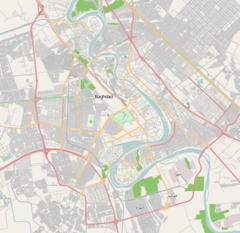
Judeo-Arabic dialects are ethnolects formerly spoken by Jews throughout the Arab world. Under the ISO 639 international standard for language codes, Judeo-Arabic is classified as a macrolanguage under the code jrb, encompassing four languages: Judeo-Moroccan Arabic (aju), Judeo-Yemeni Arabic (jye), Judeo-Iraqi Arabic (yhd), and Judeo-Tripolitanian Arabic (yud).
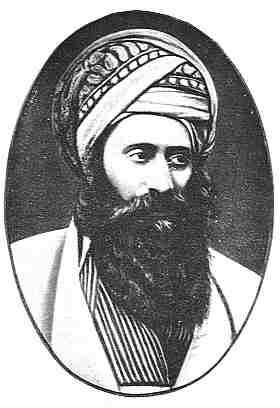
Yosef Hayim was a leading Baghdadi hakham, authority on halakha, and Master Kabbalist. He is best known as author of the work on halakhaBen Ish Ḥai, a collection of the laws of everyday life interspersed with mystical insights and customs, addressed to the masses and arranged by the weekly Torah portion.

Farhud was the pogrom or the "violent dispossession" that was carried out against the Jewish population of Baghdad, Iraq, on 1–2 June 1941, immediately following the British victory in the Anglo-Iraqi War. The riots occurred in a power vacuum that followed the collapse of the pro-Nazi government of Rashid Ali while the city was in a state of instability. The violence came immediately after the rapid defeat of Rashid Ali by British forces, whose earlier coup had generated a short period of national euphoria, and was fueled by allegations that Iraqi Jews had aided the British. More than 180 Jews were killed and 1,000 injured, although some non-Jewish rioters were also killed in the attempt to quell the violence. Looting of Jewish property took place and 900 Jewish homes were destroyed.

The former communities of Jewish migrants and their descendants from Baghdad and elsewhere in the Middle East are traditionally called Baghdadi Jews or Iraqi Jews. They settled primarily in the ports and along the trade routes around the Indian Ocean and the South China Sea.

The history of the Jews in Iraq is documented from the time of the Babylonian captivity c. 586 BCE. Iraqi Jews constitute one of the world's oldest and most historically significant Jewish communities.
From 1951 to 1952, Operation Ezra and Nehemiah airlifted between 120,000 and 130,000 Iraqi Jews to Israel via Iran and Cyprus. The massive emigration of Iraqi Jews was among the most climactic events of the Jewish exodus from the Muslim World.
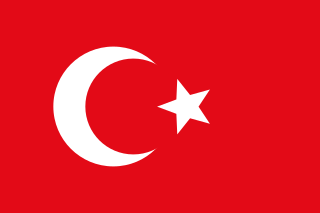
The Vilayet of Baghdad was a first-level administrative division (vilayet) of the Ottoman Empire in modern-day central Iraq. The capital was Baghdad.

The Knesset Eliyahoo, also Knesset Eliyahu, is an Orthodox Jewish synagogue located in downtown Mumbai, India. It is the city's second oldest Sephardic synagogue. It was established in 1884 by Jacob Elias Sassoon, son of Eliyahoo David Sassoon and grandson of David Sassoon; the latter had immigrated from Baghdad to India in 1832 due to persecution and had settled in Mumbai, then known as Bombay. It is maintained by the Jacob Sassoon Trust. The building's significance is attributed to its Jewish traditions as well as Indian and English colonial influences.
Al-Mada'in was an ancient metropolis situated on the Tigris in what is now Iraq. It was located between the ancient royal centers of Ctesiphon and Seleucia, and was founded by the Sasanian Empire. The city's name was used by Arabs as a synonym for the Sasanian capital of Ctesiphon, in a tradition that continued after the Arab conquest of Iran.
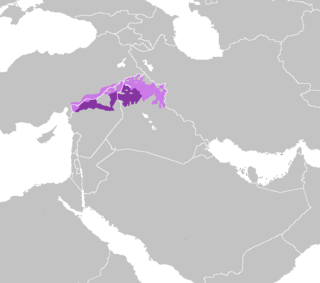
North Mesopotamian Arabic, also known as Moslawi, Mardelli, Mesopotamian Qeltu Arabic, or Syro-Mesopotamian Arabic, is one of the two main varieties of Mesopotamian Arabic, together with Gilit Mesopotamian Arabic.
Judeo-Iraqi Arabic, also known as Iraqi Judeo-Arabic and Yahudic, is a variety of Arabic spoken by Iraqi Jews.

The Great Synagogue of Baghdad, also known as the Shaf ve’Yativ Synagogue, is traditionally believed to stand on the site of a synagogue built by King Jeconiah who was exiled from the Land of Israel to Babylon in 597 BCE. It is said that material gathered from the ruins of the Temple in Jerusalem was used in its construction. The building now serves as a museum in which the synagogue had been rebuilt.

Rachel Wahba is a writer of Mizrahi/Sephardic Jewish topics and a psychotherapist in private practice in San Francisco and in Marin County. She has written extensively about her mother's traumatic experience during the Farhud, the pogrom carried out against the Jewish population of Baghdad in June 1941.
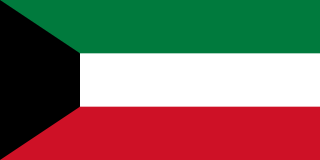
The history of the Jews in Kuwait is closely connected to the history of the Jews in Iraq.
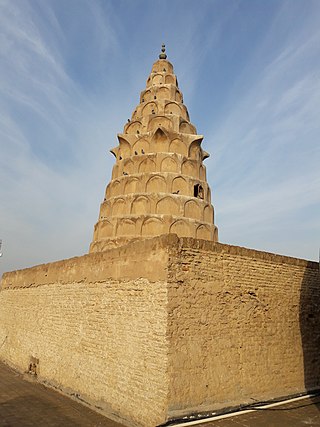
Ezekiel's Tomb is revered by Jews as the resting place of Ezekiel, an Israelite prophet who was deported from the Kingdom of Judah during the Babylonian captivity and serves as the eponymous protagonist of the Book of Ezekiel in the Hebrew Bible. Historically the oldest and most important Jewish site in Mesopotamia, it is now the location of the Al-Nukhailah Mosque, which was built on top of the original site and holds separate significance for Shia Muslims. The Jewish presence at Ezekiel's Tomb has greatly diminished since the Jewish exodus from Iraq in the 1950s, shortly after the beginning of the Arab–Israeli conflict. The larger complex has been extensively redeveloped since the 2003 invasion of Iraq; it is widely regarded by Muslims to be the resting place of Dhul-Kifl, an unknown Islamic prophet who is often identified with Ezekiel, and work was reportedly underway to convert the site's disused synagogue into a mosque.

The history of the Jews in Kolkata, formerly known as Calcutta, in India, began in the late eighteenth century when adventurous Baghdadi Jewish merchants originally from Aleppo and Baghdad chose to establish themselves permanently in the emerging capital of the British Raj. The community they founded became the hub of the Judeo-Arabic-speaking Baghdadi Jewish trading diaspora in Asia.
The 1950–1951 Baghdad bombings were a series of bombings of Jewish targets in Baghdad, Iraq, between April 1950 and June 1951.

Iraqi Jews in Israel, also known as the Bavlim, are immigrants and descendants of the immigrants of the Iraqi Jewish communities, who now reside within the state of Israel. They number around 450,000.
Sadqa Hussein was a Sephardi dayan, mohel, and spiritual leader to the Iraqi Jewish community in Iraq and Israel. He taught thousands of students in Baghdad, and led the Iraqi expatriate community in Jerusalem. He was the founder and rosh mesivta of the Shemesh Sedaqah Synagogue in the Geula neighborhood of Jerusalem.
Ezekiel Judah or Yehezkel Yehuda or Yahuda or Ezekiel Judah Jacob Sliman was a Jewish communal leader, trader of indigo, muslin, and silk, philanthropist, and talmudist of Baghdad. He migrated to India, leading the Baghdadi Jewish community of Kolkata in his lifetime and establishing the city's first synagogues.
